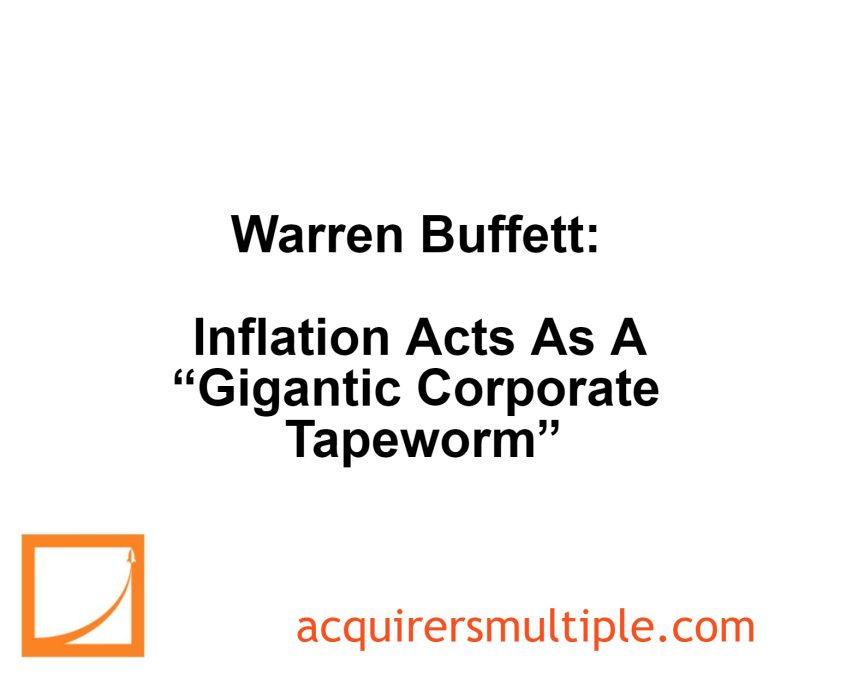In his 1981 Berkshire Hathaway Annual Letter, Warren Buffett used the metaphor of a “gigantic corporate tapeworm” to describe how inflation preempts a portion of a company’s investment dollars, regardless of its profitability. Here’s an excerpt from the letter:
What makes sense for the bondholder makes sense for the shareholder. Logically, a company with historic and prospective high returns on equity should retain much or all of its earnings so that shareholders can earn premium returns on enhanced capital.
Conversely, low returns on corporate equity would suggest a very high dividend payout so that owners could direct capital toward more attractive areas.
(The Scriptures concur. In the parable of the talents, the two high-earning servants are rewarded with 100% retention of earnings and encouraged to expand their operations. However, the non-earning third servant is not only chastised – “wicked and slothful” – but also is required to redirect all of his capital to the top performer. Matthew 25: 14-30).
But inflation takes us through the looking glass into the upside-down world of Alice in Wonderland. When prices continuously rise, the “bad” business must retain every nickel that it can.
Not because it is attractive as a repository for equity capital, but precisely because it is so unattractive, the low-return business must follow a high retention policy.
If it wishes to continue operating in the future as it has in the past – and most entities, including businesses, do – it simply has no choice.
For inflation acts as a gigantic corporate tapeworm. That tapeworm pre-emptively consumes its requisite daily diet of investment dollars regardless of the health of the host organism.
Whatever the level of reported profits (even if nil), more dollars for receivables, inventory and fixed assets are continuously required by the business in order to merely match the unit volume of the previous year.
The less prosperous the enterprise, the greater the proportion of available sustenance claimed by the tapeworm.
Under present conditions, a business earning 8% or 10% on equity often has no leftovers for expansion, debt reduction or “real” dividends. The tapeworm of inflation simply cleans the plate. (The low-return company’s inability to pay dividends, understandably, is often disguised.
Corporate America increasingly is turning to dividend reinvestment plans, sometimes even embodying a discount arrangement that all but forces shareholders to reinvest.
Other companies sell newly issued shares to Peter in order to pay dividends to Paul. Beware of “dividends” that can be paid out only if someone promises to replace the capital distributed.)
You can read the entire letter here:
1981 Berkshire Hathaway Annual Letter
For all the latest news and podcasts, join our free newsletter here.
Don’t forget to check out our FREE Large Cap 1000 – Stock Screener, here at The Acquirer’s Multiple:




